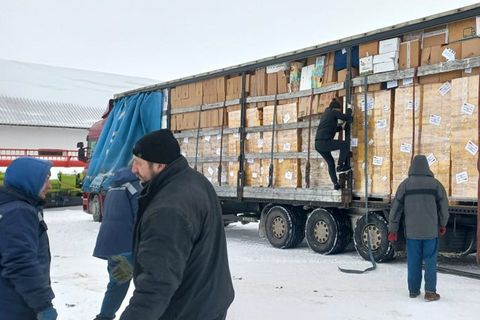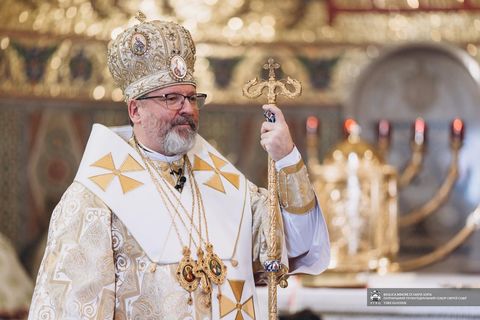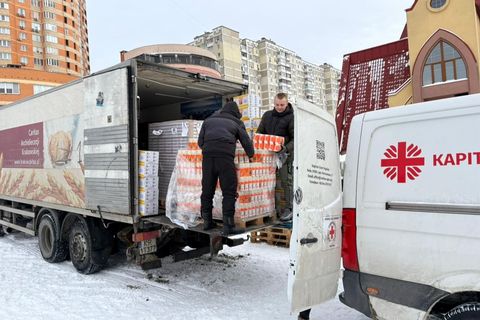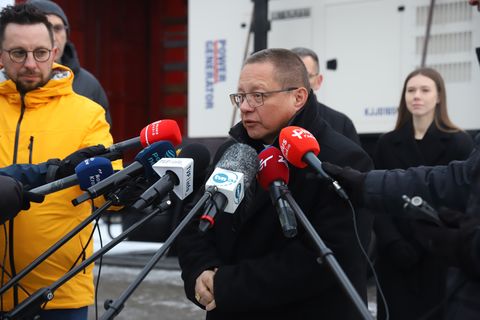Ukraine shows the whole world, which is the post-truth world, there are values without which people cannot live, — His Beatitude Sviatoslav
The war in Ukraine is the No. 1 topic in Europe and the world today because it has exposed significant problems that the world prefers to turn a blind eye to. Virtually, Russia is now undermining the foundations on which the world has been grounded since the Second World War — international law, international institutions that were levers of influence, and the entire system of international security. In a conversation with Krzysztof Tomasik for the book “God Has Not Forsaken Ukraine,” His Beatitude Sviatoslav, Head of the UGCC, speaks about the impact of the war in Ukraine on the global system of politics, diplomacy, and security.
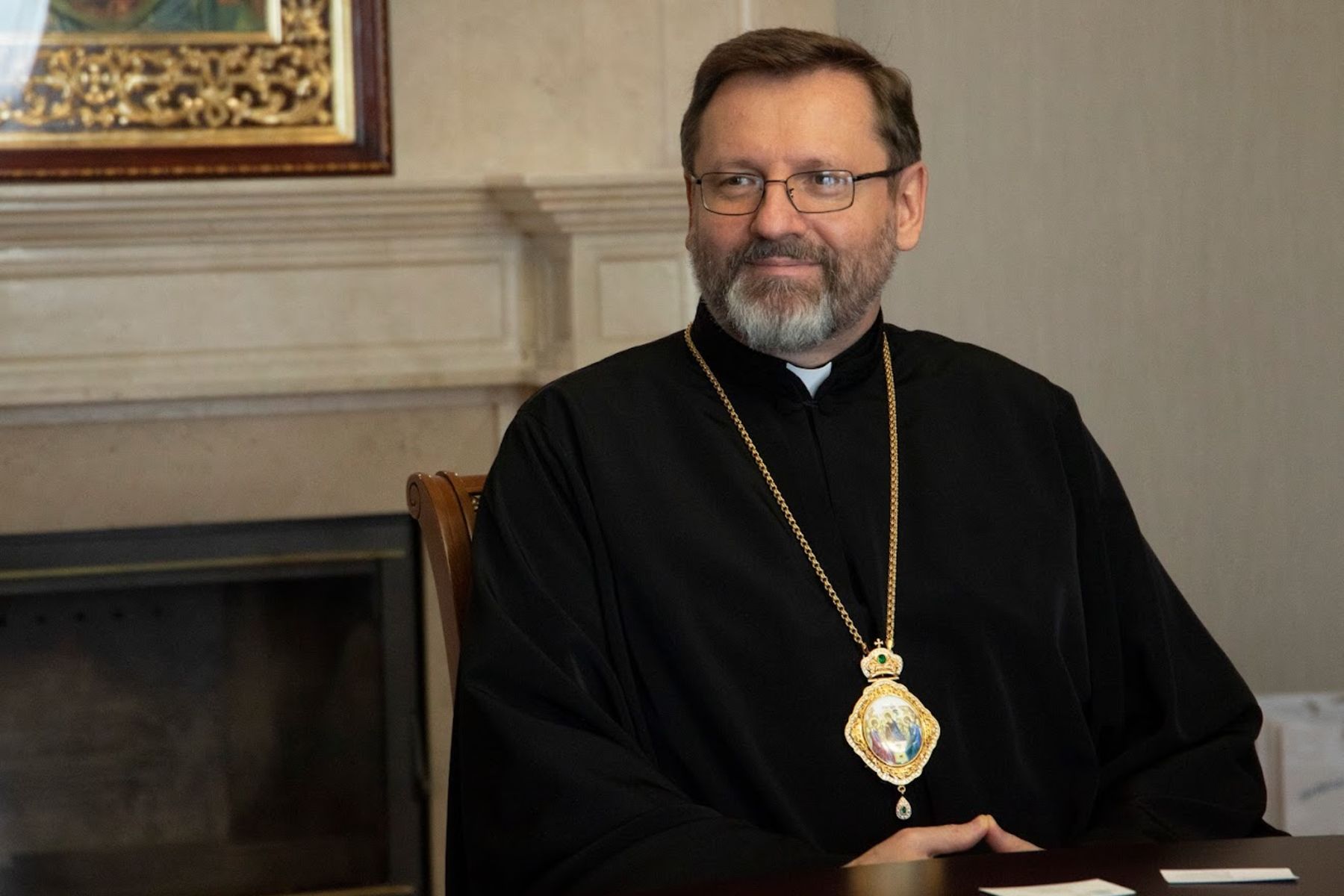
Why do leaders of states and representatives of diplomatic corps from different countries say that Kyiv is now the hub where the future of world diplomacy is being decided?
“Because Russia’s war against Ukraine has undermined the foundations of law and international relations,” says the head of the UGCC. “After all, if a big state can violate the borders of neighboring countries with impunity, moreover, if this country obtained nuclear weapons from a neighboring country, became a guarantor of the inviolability of its borders, and now threatens it with nuclear weapons, it means that international law no longer works. Thus, there is no rule of law, only the rule of the stronger. All international institutions that emerged after World War II based on international law are now losing their legitimacy. These institutions and all international law were supposed to protect the world from possible new wars. Even the very project of establishing the European Union was supposed to guarantee that there would be no more wars in Europe. Therefore, all the mechanisms for the coexistence of nations and states that functioned before February 24, 2022, were disrupted at their core.”
His Beatitude Sviatoslav emphasizes that Ukraine is in the public eye of all international institutions today, partly because this war and the invasion of Russia have fully exposed the crisis of international law and world diplomacy: “What is the basis of diplomacy? Diplomacy is not really about some trade between countries: the world is not a big marketplace where the price of oil, gas, or peace is negotiated. Diplomacy is based on international law. If it does not work, there is nothing to deliberate. That is why this war has moved Ukraine to the epicenter of the activities of all international institutions, whether humanitarian, security, or other types of interstate relations in the modern world.
Ukraine is now in the spotlight because if Russia wins, it will mean that World War III has erupted. Because then, no small country will feel secure and try to create its atomic bomb because no diplomacy will give it security. Only ‘my army, my weapons, and my atomic bomb,’ which the Russian Orthodox Church boasts about and blesses today, will matter. It means that we are entering a world of jungle, not civilization. Today, the issue of Ukraine, the end of the war, and the return to the 1991 borders is a question of whether international law will overcome blind aggression. That is why today Ukraine is the epicenter of world events.”
The world is shaking to its foundations and must change — there is no other way. How does the Head of the UGCC see Ukraine’s mission in the modern world?
“First of all, we must realize Ukraine’s mission ourselves. We are now directly experiencing the phenomenon of encountering the pain and tragedy of war, the consequences of which we cannot even fathom. But we are already discovering some profound fundamental principles the world must return to.
Today, Ukraine is showing the whole world, which is a post-truth world, and is losing certain moral determinants, that there are values without which a person cannot live. And these values do not belong to economic prosperity. Ukrainians are now giving their lives for human dignity, for the right to life and freedom. These are the foundations of every civilized free society. If a country builds interpersonal relationships in a way that puts oil and gas prices above the value of human life, then that country is doomed. In the end, the civilization of Judas’s thirty pieces of silver will lose something priceless.”
His Beatitude Sviatoslav emphasizes that Russia is waging a colonial war in Ukraine today, a war of enslavement, to maintain its imaginary macabre image of a post-Soviet empire. And Ukraine is saying no to these ghastly desires: “Ukraine today testifies: yes, Russia is waging a colonial war in Europe, although it is difficult for many to understand and realize this. For example, for Argentines, Europeans have always been colonizers. And now, it is difficult for them to realize that Europe can have any real problems because it is believed that the real problems are those countries freeing themselves from European colonialism. Latin America, Africa, and Asia are convinced of this. And Ukraine is liberating itself from Russian colonialism in Europe! Therefore, without a free Ukraine, the theory of liberation, of which the liberation theology born in Brazil is so proud, is impossible.
Just as America once said ‘no’ to England and the United States emerged, just as Argentina said ‘no’ to the Spanish crown and a free state appeared in southern Latin America, just as Brazil said ‘no’ to Portugal and a tremendous cultural continent in Latin America emerged, as India said ‘no’ to Great Britain and a great Indian subcontinent emerged, as Morocco said ‘no’ to France and a prosperous state in North Africa emerged, so today Ukraine says ‘no’ to Russia, and one can be sure that it will never say ‘yes’ again. And if they keep reiterating that the new world should be free of political, ideological, or economic colonialism and do not understand that there can be no place for Russian colonialism, particularly in Europe, this free world will never exist.”
The UGCC Department for Information